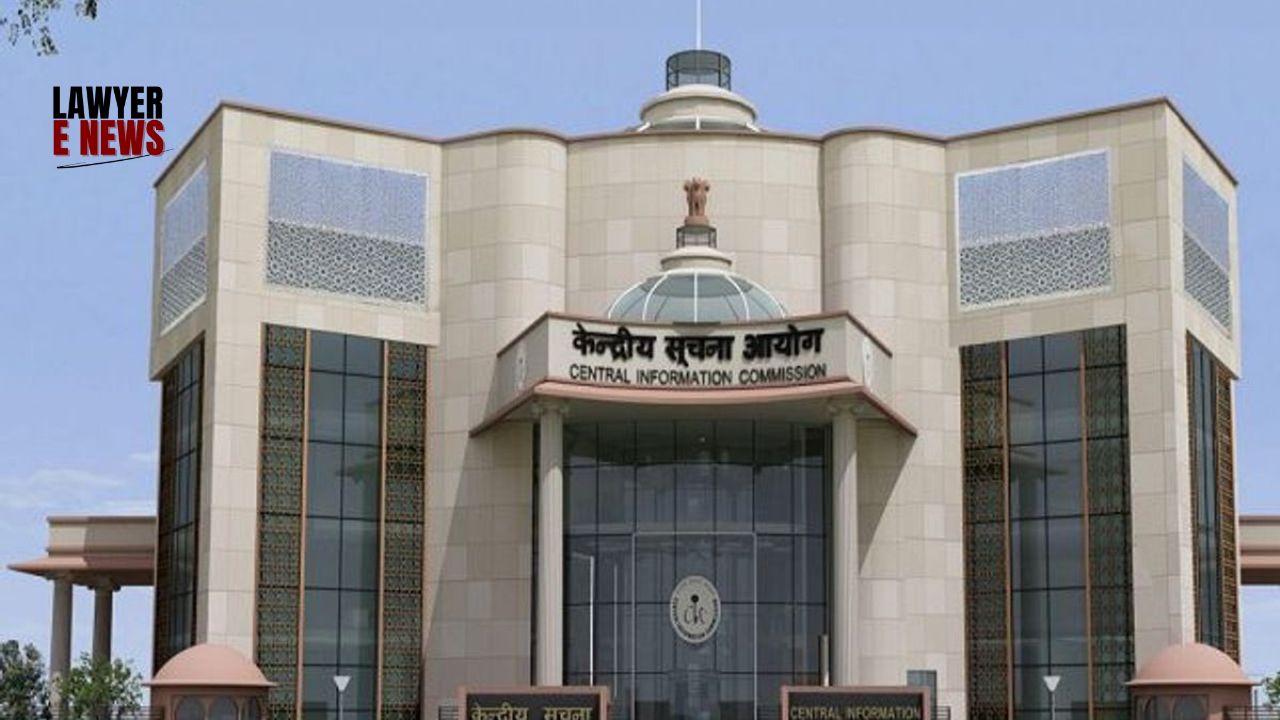-
by Admin
15 February 2026 5:01 PM



Central Information Commission upholds the Bank of India's refusal to disclose detailed promotion data, citing privacy concerns and lack of public interest. The Central Information Commission (CIC) has dismissed a series of appeals filed by Sube Singh, who sought extensive information from the Bank of India regarding internal promotion processes. The decision, delivered by Information Commissioner Anandi Ramalingam, underscores the importance of protecting third-party personal information and the limitations imposed by Section 8(1)(j) of the Right to Information (RTI) Act.
Sube Singh, the appellant, filed multiple RTI applications seeking detailed records related to the promotion of officers from Scale III to VI in the Bank of India, specifically requesting information on officers from Odisha and their promotion results from 2016 to 2022. The CPIO denied parts of the requests, citing excessive workload and privacy concerns, leading Singh to file appeals. The First Appellate Authority upheld the CPIO's decisions, prompting Singh to approach the CIC.
The Commission emphasized the significance of protecting third-party information under the RTI Act. "The queries raised contain information of third parties, the disclosure of which would cause unwarranted invasion of the privacy of third parties and no larger public interest warrants disclosure of such information," the judgment noted.
The decision referenced key Supreme Court rulings, particularly Central Board of Secondary Education (CBSE) & Anr. v. Aditya Bandhopadhyay and Central Public Information Officer, Supreme Court of India Vs. Subhash Chandra Agarwal. These cases highlighted the balance between transparency and protecting sensitive personal information.
The Commission reiterated that the RTI Act should not be used to address personal grievances or to demand extensive data compilation that disrupts public authorities' regular functions. "Indiscriminate and impractical demands for disclosure would adversely affect the efficiency of the administration," the court stated, cautioning against the misuse of the RTI Act.
The ruling extensively discussed the application of Section 8(1)(j), which exempts personal information from disclosure unless it serves a larger public interest. The judgment emphasized that the appellant's request did not meet this criterion. "The appellant's insistence on state-wise data and third-party information does not fulfill the stipulations of larger public interest," the court concluded.
The CIC noted that the procurement and compilation of the requested information would disproportionately divert public authority resources, as outlined under Section 7(9) of the RTI Act. The decision emphasized that the RTI Act aims to ensure transparency without compromising administrative efficiency.
"The right to information is a cherished right... However, indiscriminate and impractical demands for disclosure would adversely affect the efficiency of the administration," the judgment cited from the Supreme Court's CBSE case.
The CIC's dismissal of Sube Singh's appeals underscores the careful balance between transparency and privacy within the framework of the RTI Act. By upholding the Bank of India's decision to withhold certain information, the judgment reaffirms the protections afforded to personal data and the practical limits of information disclosure. This ruling serves as a significant precedent for future RTI requests, highlighting the judiciary's role in safeguarding sensitive information while promoting accountability.
Date of Decision: 15 July 2024
